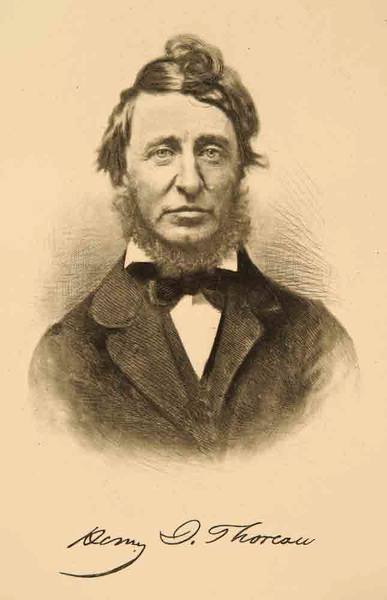In an article discussing civil disobedience in the face of unreasonable government action, Lawrence W. Reed recalls the opinions of noted civil disobedience supporter Henry David Thoreau:
History is full of stories of people who practiced peaceful resistance in defense of sound principles in the face of official stupidity and oppression. Sometimes it has been the best way, if not the only one, to get bad policies changed.
One hundred and seventy years ago, a famous American figure wrote,
Must the citizen ever for a moment, or in the least degree, resign his conscience to the legislator? Why has every man a conscience then? I think that we should be men first, and subjects afterward.
That figure was Henry David Thoreau. Born in Concord, Massachusetts in 1817, he was an eminent philosopher, poet and essayist. His best-known works are his book Walden: Life in the Woods and his essay, “Civil Disobedience”. The latter proved influential far beyond his time and place, shaping the thoughts and actions of eminent dissidents the world over. As we ponder the civil disobedience rising in reaction to coronavirus policies, now is a perfect time to give Thoreau’s essay another look. Toward that end, I offer some excerpts below.
One last thing before I do that: I want readers to know that, speaking strictly for myself, I endorse the re-opening of houses of worship (and many other things, for that matter), whether the government officially allows it or not. If that perspective makes life a little uncomfortable for the power-hungry at this time, so be it. The additional articles listed below reflect my reasoning.
Now, to Henry David Thoreau:
- “Under a government which imprisons any unjustly, the true place for a just man is also a prison…, the only house in a slave state in which a free man can abide with honor.”
- “If the injustice is part of the necessary friction of the machine of government, let it go, let it go; perchance it will wear smooth — certainly the machine will wear out. If the injustice has a spring, or a pulley, or a rope, or a crank, exclusively for itself, then perhaps you may consider whether the remedy will not be worse than the evil; but if it is of such a nature that it requires you to be the agent of injustice to another, then I say, break the law. Let your life be a counter-friction to stop the machine. What I have to do is to see, at any rate, that I do not lend myself to the wrong which I condemn.”
- “I am as desirous of being a good neighbor as I am of being a bad subject.”
- “If a thousand [citizens] were not to pay their tax-bills this year, that would not be a violent and bloody measure, as it would be to pay them, and enable the State to commit violence and shed innocent blood. This is, in fact, the definition of a peaceable revolution, if any such is possible.”
- “The only obligation which I have a right to assume is to do at any time what I think right.”
- “I saw that the State was half-witted, that it was timid as a lone woman with her silver spoons, and that it did not know its friends from its foes, and I lost all my remaining respect for it, and pitied it.”
Thanks for listening. See you in church




